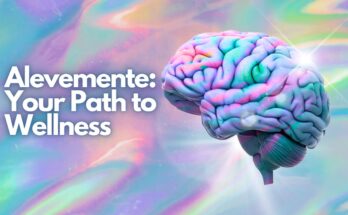Effective therapy for drug addiction tackles the underlying reasons of addiction, such as depression, anxiety, or trauma. It’s critical to incorporate multiple diagnosis treatment clinics in your long-term recovery strategy if you want to stay sober.
What Is Dual Diagnosis and How Does It Affect You?
Many addictions are exacerbated by mental health difficulties. Dual diagnosis or co-occurring disorders refers to when you have both a drug misuse problem and a mental disease. Addicts may experience psychological problems such as:
- Major depression or bipolar disorder are examples of mood disorders.
- Anxiety disorders, such as generalized anxiety disorder, are common.
- Obsessive-compulsive disorder (OCD)
- Personality problem on the edge
- ADHD
- Trauma and Post-Traumatic Stress Disorder (PTSD)
Many people use drugs or alcohol to cope with underlying mental health problems. Drugs and alcohol can dull emotional anguish temporarily, but they can’t make it go away. In these situations, alcohol use disorder (AUD) and substance addiction may develop. The top dual diagnosis Rehabilitation Centre in New Delhi is the greatest approach to figure out what’s wrong with you.
Dual Diagnosis Treatment Centers: Why Are They Required for Addiction Recovery?
Dual diagnosis therapy includes both drug abuse treatment and mental health care. We provide complete examinations at the Rehabilitation Centre in New Delhi, the leading dual diagnosis treatment center, at the start of your therapy.
Some people who are battling addiction may not be getting the therapy they need for their co-occurring conditions. Behavioral health treatment programs assist each client in regaining mental health control and recovering from substance misuse.
Clients in dual diagnosis treatment programs receive a detailed, personalized treatment plan. Additionally, Behavioral Health addiction treatment specialists will recommend the client to appropriate programs in their hometown following discharge, if necessary.
Relapse is more likely when issues like trauma, sadness, and anxiety are not addressed. If you have co-occurring disorders and solely treat the drug use disorder, you may feel pressured to self-medicate when you get home.
For a short time, drugs, alcohol, or other compulsive habits may alleviate the symptoms of sadness or anxiety, but they return with new difficulties.
Co-Occurring Disorders Outpatient and Inpatient Programs
They Offer Hope Inpatient and outpatient treatment programs for co-occurring disorders are available at Rehabilitation Centre in New Delhi. Your needs and personal circumstances will determine which one is best for you.
When selecting an inpatient program, keep the following in mind:
- You remain at the drug rehabilitation center.
- A drug rehabilitation team is available to give medical and emotional support 24 hours a day, 7 days a week.The therapy might last anywhere from one to six months.
- Treatment is intended to help those who are suffering from serious drug or alcohol addiction.
- There are no everyday life distractions.
Outpatient drug rehab programs are less restricted than inpatient treatment, but they are frequently best suited to people who have already made significant progress in their recovery. Residential treatment (where you stay on the premises) may be necessary for someone who has to be continuously monitored throughout drug detox.In many cases, long-term medical care and pain management may be required.




